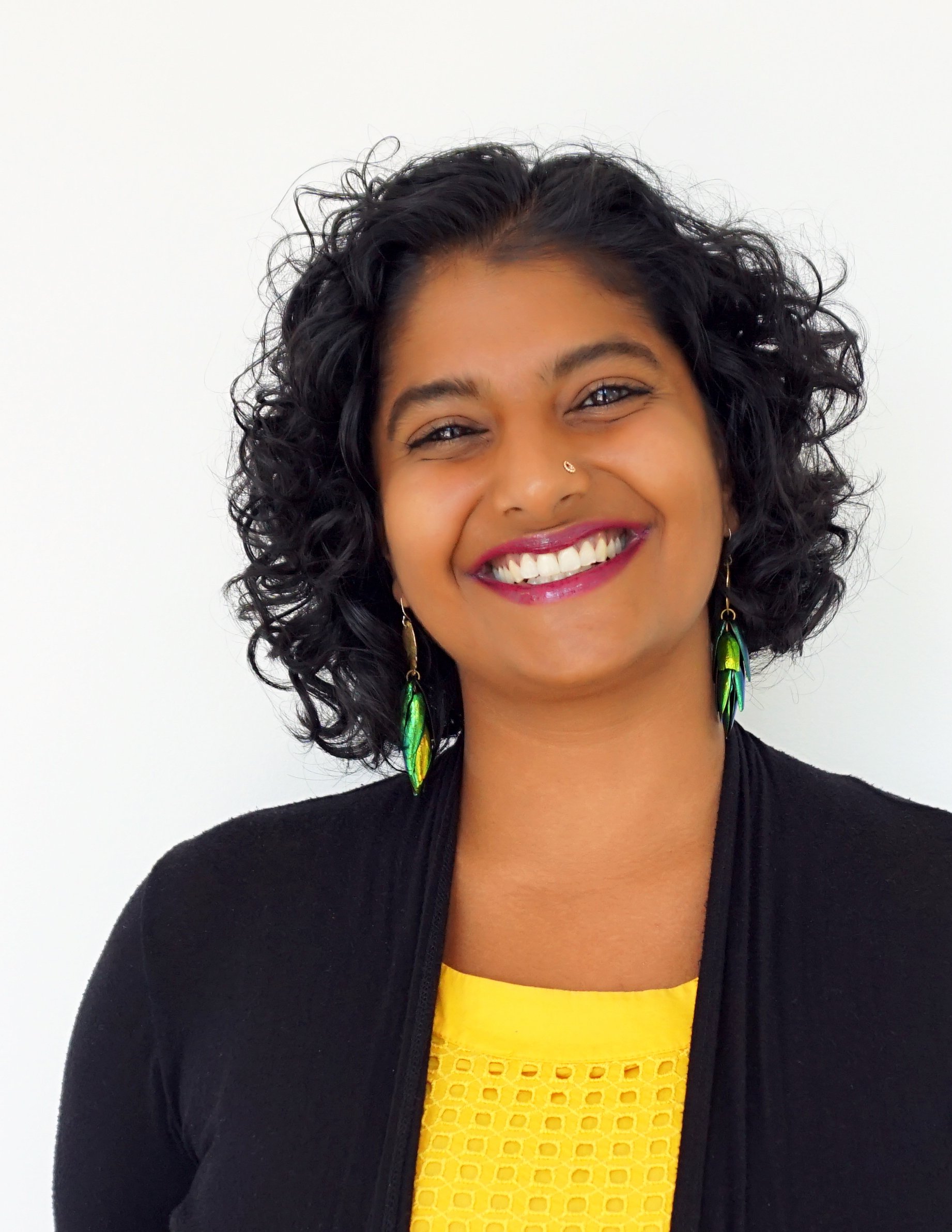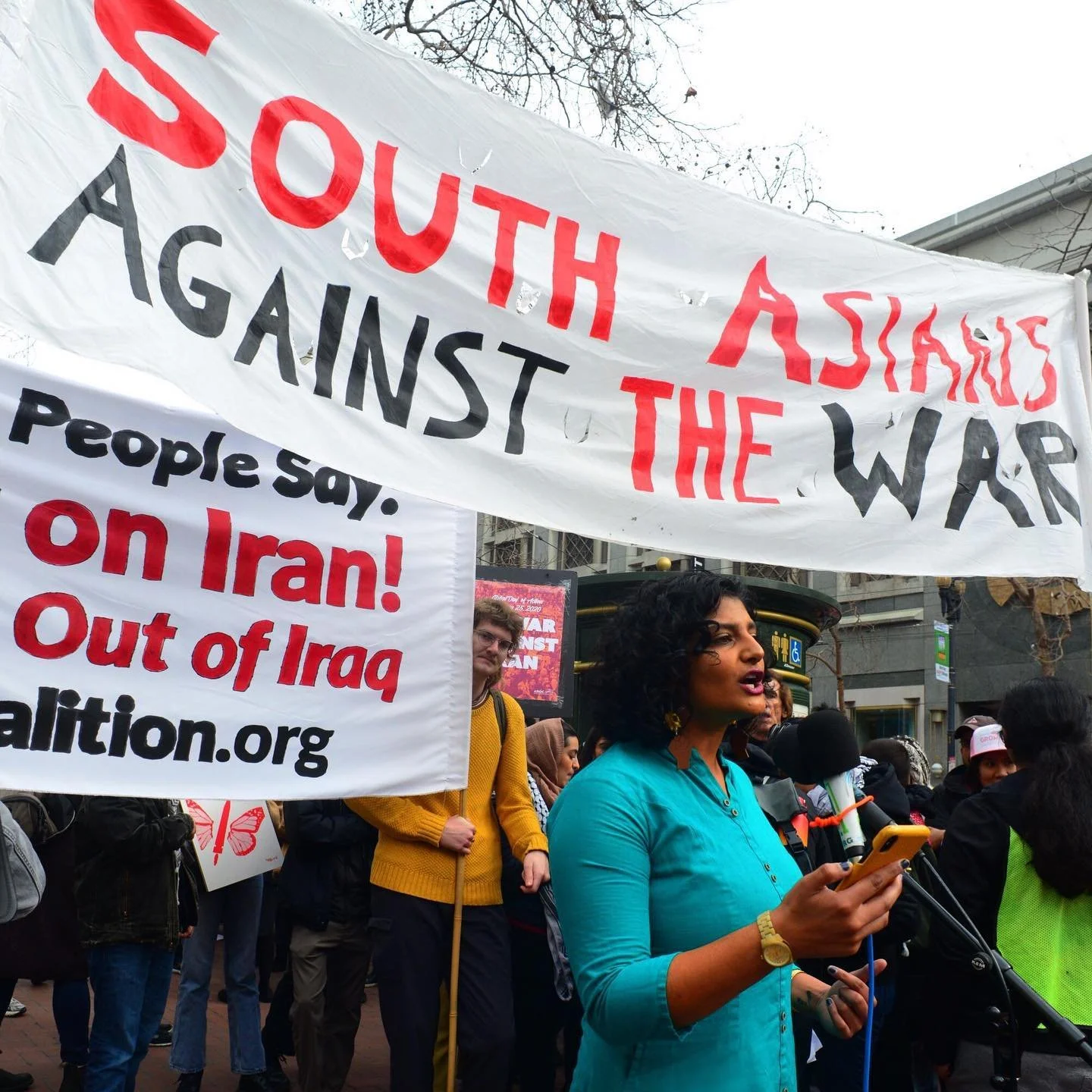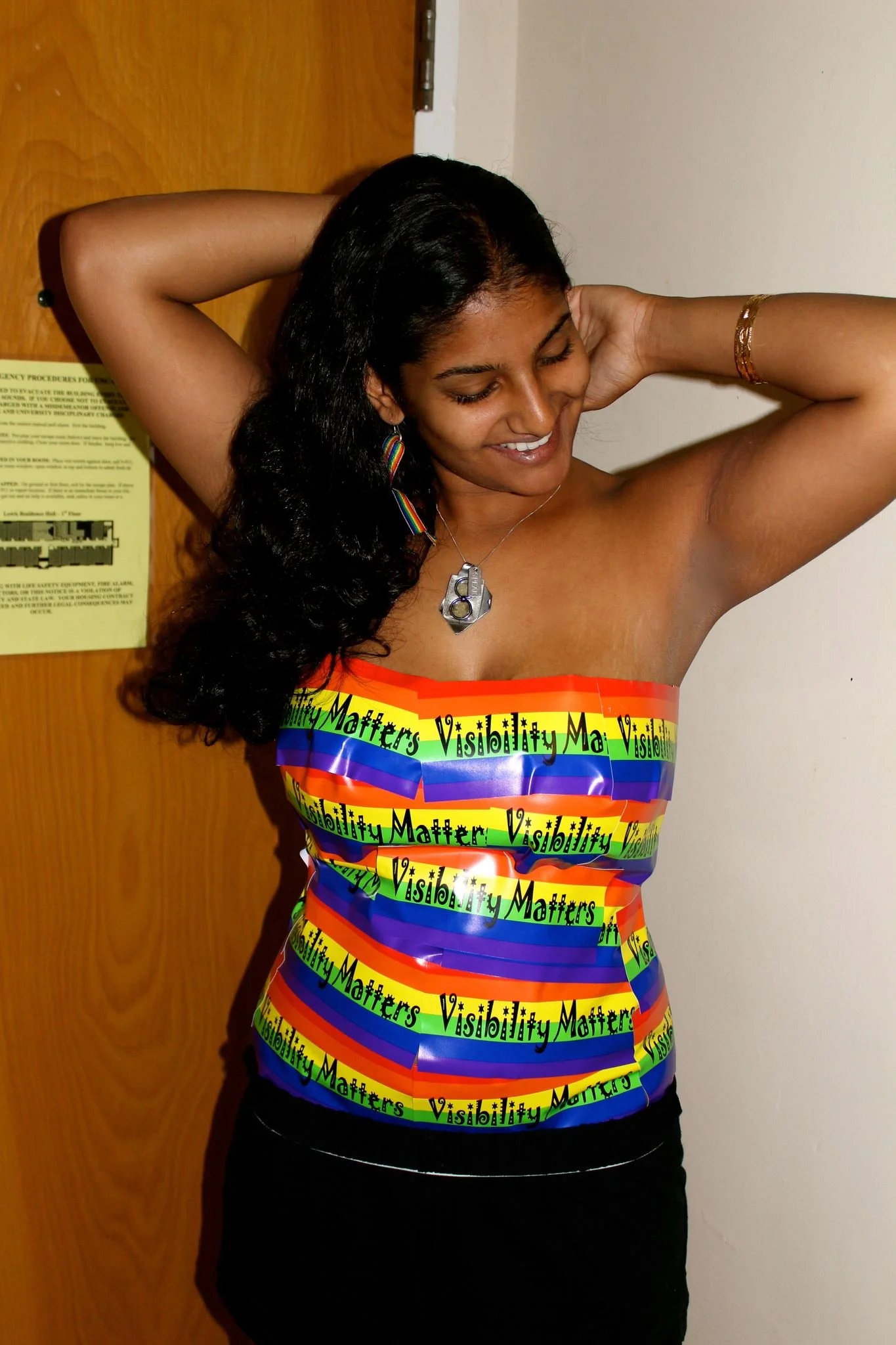Swati Rayasam
Photo courtesy of Swati Rayasam.
When I think about people in my personal life who have deep connections to North Carolina, one of the first people to come to mind is Swati Rayasam.
Rayasam is almost 10 years older than me, but was a constant presence in my family friend circles growing up, someone who I always perceived as having a steady grip on her Indianness, Americanness and Southernness all at once.
She now lives in Berkeley, California, working in science policy at the University of California, San Francisco at a nonprofit called the Program on Reproductive Health and the Environment and serving as the co-coordinator of organizing group Alliance of South Asians Taking Action.
Photo courtesy of Swati Rayasam.
And without a doubt, she says she’s a Southerner:
“100 percent. North Carolinian, Southerner…I'm so North Carolinian, I'm so Southern that somebody will say, like, ‘Oh, you're from North Carolina?’ And my immediate response will be like, ‘Yeah, move a grade up, take your shirt off, twist it around your head, spin like a helicopter.’
[Laughs] It's just like, why? I don't know. Because it's great, that's why. Shoutout to Petey Pablo.”
Rayasam was born in Durham in 1991 to parents who immigrated from Andhra Pradesh, India. The family started out in an apartment off South Lasalle Street called Holly Hill (where it was “all broke, all brown, all the time,” she says), before moving to the house that Rayasam’s parents still live in about 10 minutes down the road.
Photo courtesy of Swati Rayasam.
Photo courtesy of Swati Rayasam.
In most any conversation about North Carolina, you can tell Durham holds great significance for Rayasam. It’s where she went to school and where she became a full-fledged adult.
But growing up in Durham also came with certain complications in navigating identity.
“I think that growing up in Durham, when I was growing up in the 90 and early 00s, it was really odd to be in a very Black and white place as a brown person. And I've always kind of felt this like lack of full belonging. And I was talking to somebody about this the other day, like, I think that at a very, very young age, we made choices around alignment between Black and white. And not that those choices are completely static and unchangeable, but they really influenced a lot of how we experienced Durham and just to have kind of categorized or understood our experiences.”
Rayasam graduated from Jordan High School in 2009, where she was a part of the marching band and the Gay Straight Alliance. At the school, Rayasam recalls there being stark divisions of race in certain spaces.
Photo courtesy of Swati Rayasam.
Photo courtesy of Swati Rayasam.
Rayasam ended up attending UNC-Chapel Hill — somewhere she initially had no interest in — and graduated in 2013.
Photo courtesy of Swati Rayasam.
“I did not want to go to Chapel Hill. Chapel Hill was, like, not a place I wanted to be. Chapel Hill was pretty broadly categorized as the place where, like, you went if you were smart, but you didn't try hard enough. And just kind of a shoe-in, which upon reflection is just super fucked up and also not true. Like, there were a lot of people I knew who were very smart who did not get into Chapel Hill [laughs]. But yeah, by the time I had graduated high school, I was really sick of being in these large schools because I felt like they made me disappear in a way I didn't really like. And, in growing up and being kind of Indian and not a lot of other South Asians on the school, I was both, like, hyper visible and invisible at the same time. Like, I remember, I really love henna, but I would be super embarrassed to have henna, like just on my hands as a clear cultural marker of difference, right? Or the inevitable, like, teacher tries to point out that I am Indian for the support of cultural diversity in the classroom and asking me questions about India or Hinduism or South Asia that I was just not equipped to answer that, that obviously, like, isolated and alienated me from the other students in class and pointed me out as clearly different.”
And when she thinks about the organizations she was involved in, there were very specific lines drawn.
Photo courtesy of Swati Rayasam.
“I remember having a lot of shame and resentment toward Cary Indians for just very clearly being like a sore thumb sticking out and not assimilating at all. Like really patently refusing to assimilate. And so I perceived those groups like Sangam in that way. And so that just didn't really feel like it was authentic to my experience or the way I wanted to carry out my identity. So I was mostly in Young Democrats and what was at the time known as the GLBTSA, or ‘Giblitza.’”
When thinking back on her experiences of growing up in the Triangle as an Indian American, she feels like there are very unique differences broken down even by city.
Rayasam describes much of her earlier desire to not engage in her South Asianness as “fractures.”
She also credits a great deal of the evolution of her self-concept as a South Asian to the radical organizing work she began immersing herself in with ASATA after she moved to do a masters at the University of California, Berkeley in 2015.
Photo courtesy of Swati Rayasam.
When she thinks about the South now, it’s clear Rayasam has a great deal of reverence for the region.
“I think that the South is just really deeply complicated place. I think that a lot of people tried to categorize the South or, you know, put the South in these, like, binaries. And it's just not that, actually, the South is really a place that lives in the gray. And that, you know, that encompasses things as radical but small, as like your butch dyke farmer girl, right? Your early stage farm lesbian and, like, queer culture in the South in that way, right? And things as large as, just, like, radical church-based change.
I think the South is a place that has a lot of trauma. It has a lot of authenticity, it has a lot of pain. It has a deep capacity for warmth and love and community. I think the South is really core to my principle as an organizer because it is really crucially important for me to put community first in my organizing.”









